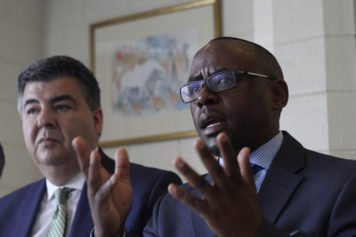On Jan. 16, 2012, several Islamic groups, led by the Tuareg-based National Movement for the Liberation of Azawad (MNLA), rebelled against the Malian government for the independence of northern region, also known as Azawad.
Frustrated by President Amadou Toumani Toure’s management of the rebellion and the high number of military deaths, Malian soldiers marched on the capital of Bamako in March 2012, causing Toure to flee the capital.
The military’s takeover of Bamako created instability in the country and allowed the rebels to quickly take control of the north by April, according to Washington State University professor Peter Chilson, who explained the conflict at an appearance at the George Washington University’s Elliott School of International Affairs in Washington, D.C.,
Chilson also noted that the Tuareg had little time to celebrate their victory. By June, the jihadist groups the Tuareg had partnered with had undermined the rebellion, seized power and established a fundamentalist form of Sharia, Islamic law.
The Tuareg never desired the implementation of Islamic law in their territory, Chilson said. Instead, they simply wanted “an independent state in which they could protect their culture.”
The Islamists remained in power until the government of Mali called on France to launch an intervention this past January.



